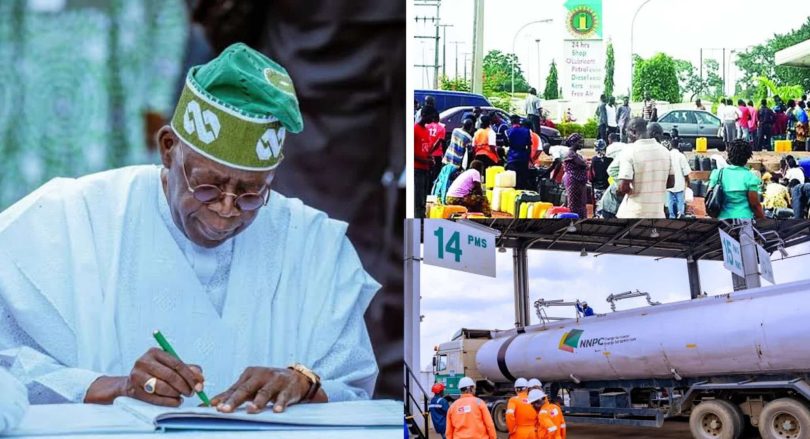President Bola Tinubu has approved the introduction of a 15 percent ad-valorem import duty on diesel and premium motor spirit (PMS), also known as petrol.
The new policy is expected to raise the retail price of petrol by about ₦99.72 per litre, sparking concerns over a possible increase in transportation and living costs across Nigeria.
Approval Communicated to Key Agencies
In a letter dated October 21, 2025, sighted by TheCable, Damilotun Aderemi, the Private Secretary to the President, formally conveyed Tinubu’s approval to the Federal Inland Revenue Service (FIRS) and the Nigerian Midstream and Downstream Petroleum Regulatory Authority (NMDPRA).
According to the letter, the President granted the approval following a request by FIRS to impose the 15 percent duty on the cost, insurance, and freight (CIF) value of imported fuel.
The move, the agency explained, is intended to align importation costs with current domestic market realities and strengthen the government’s non-oil revenue drive.
Expected Impact on Fuel Prices
Analysts say the decision could push pump prices higher, especially in states far from coastal depots. The estimated ₦99.72 per litre increase may take the average price of petrol closer to ₦1,000 per litre, depending on distribution costs and market dynamics.
Industry experts warn that the adjustment might further strain household budgets and raise production costs for small businesses already burdened by inflation and a weak naira.
However, government sources argue that the policy will help reduce revenue leakages and ensure better accountability in the fuel importation process.
Policy Aimed at Fiscal Balance
The introduction of the import duty is part of the Tinubu administration’s broader effort to boost federal revenue, reduce dependence on borrowing, and stabilise fiscal operations amid growing subsidy-related expenses.
Officials at FIRS and NMDPRA are expected to begin implementing the directive immediately, with monitoring teams to ensure compliance across all fuel import channels.

